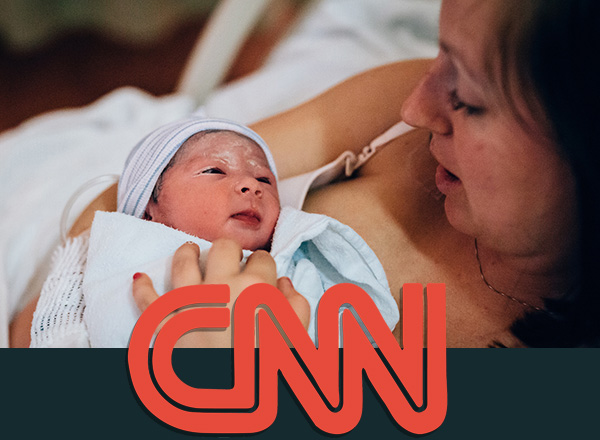Three-person IVF may prevent inherited disease
Embryos containing DNA from a man and two women have been created by scientists.
They say their research, published in the journal Nature, has the potential to help mothers with rare genetic disorders have healthy children.
The aim is to prevent damaged DNA in mitochondria - the "batteries" which power the cell - from being passed on by the mother.
IVF clinics are not currently permitted to carry out the procedure. Around one in 200 children is born each year with mutations in the mitochondrial DNA.
In most cases this causes only mild disease, sometimes without symptoms. But around one in 6,500 children is born with mitochondrial disease, which can cause serious and often fatal conditions, including muscular weakness, blindness and heart failure.
The scientists have developed a technique which would potentially allow them to replace defective mitochondria during IVF.
The research, funded by the Muscular Dystrophy Campaign, Medical Research Council and the Wellcome Trust, used newly fertilised eggs left over from IVF treatment.
The nuclei from the father's sperm and the mother's egg, which contain the parents' DNA, were removed, leaving behind the faulty mitochondria.
The nuclei were put into another egg from which the nucleus had been removed, but which retained its mitochondria. This new embryo contained the genes from both parents plus a tiny amount of mitochondrial DNA from the donor egg.
"What we've done is like changing the battery on a laptop," said lead author Professor Doug Turnbull.
"The energy supply now works properly, but none of the information on the hard drive has been changed.
"A child born using this method would have correctly functioning mitochondria, but in every other respect would get all their genetic information from their father and mother."
Legal hurdles
The Newcastle team created a total of 80 embryos. These were cultured for up to eight days in the laboratory under the terms of a licence granted by the Human Fertilisation and Embryology Authority (HFEA).
The team is planning further studies to check the safety and efficiency of the procedure. The law currently prevents the technique being used in fertility treatment. A licence to carry out the study was refused on two occasions before being granted five years ago.
Ethics expert, Dr Donald Bruce, former director of the Society, Religion and Technology Project of the Church of Scotland, said the research raised important ethical issues as well as potential risks. He said: "If the Newcastle results are taken forward to medical application, they need to be applied under very strict controls, and only where serious disease is otherwise likely to result." The work raised several ethical problems, he explained, including safety risks, children with DNA from two mothers, and making genetic changes to unborn children.
Too late
The Newcastle team says that the DNA from the second woman would be only a few genes, compared with at least 23,000 genes inherited from a parent. But although the genetic changes produced by the technique would be small, they would be permanent and passed on down the generations.
Sharon Bernardi, aged 44, from Sunderland, inherited mitochondrial disease from her mother. The condition has claimed the lives of six of her children, all of them dying within a few days of birth. Her only surviving child, Edward, who is 20, suffers from a serious mitochondrial disease and needs constant care. Sharon said: "It was devastating to lose my children, and this happened again and again. I feel lucky to have Edward, but he has very serious health problems as a result of the faulty DNA.
"It will be too late for me but it would be amazing if scientists can prevent this in the future so that others don't have to go through what I did."

